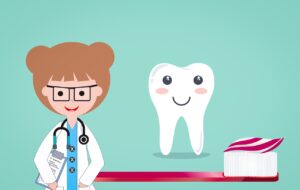Cavities are the most basic type of tooth decay, and are especially susceptible to children. Proper home hygiene and diet along with frequent dental checks and visits to clean the teeth are the best protection against cavities. But even with these preventive steps, cavities can often be difficult to avoid. Depending on how often children brush their teeth and the foods they eat, some children are at greater risk for cavities than others. That is why frequent visits to a pediatric dentist are so crucial. The earlier a child begins to see a dentist, the better we are able to detect symptoms that lead to a greater risk of developing cavities.
Cavities in Children
It’s incredibly necessary to keep your baby teeth safe. Many parents think that treating cavities in baby teeth is not necessary because their child will inevitably lose these teeth anyway. Untreated cavities in baby teeth, however, may have significant repercussions for your child’s dental and general health. Extreme pain, illness, tooth loss, gum disease, sleep loss, failure to eat, and low self-esteem can be encountered in children with untreated decay. Furthermore, a single untreated cavity can harbor bacteria which can potentially spread decay to other baby teeth. Tooth decay in children and adults of all ages needs to be controlled very closely due to the adverse effects and impact that dental disease may have if left unchecked in the short term and for life.
Dental Fillings
Preventative and restorative steps are addressed when a cavity is found. The dentist will begin by removing the decay when a restoration is recommended, so it will not continue to spread. After the decay is removed, the dentist fills in where the decay was. Composite resin can be produced as fillings. In select circumstances, your dentist can prescribe other materials for the restoration of a tooth. Some dentists provide you and your child with a same-day care. They also assist you in scheduling follow-up appointments in situations where more comprehensive dental procedures are required.
Each child is different so dentists at Lake Worth Pediatric Dentistry personalize each visit based on the child’s needs and parental preferences, and the main factors include:
- The Child’s Age
- Cavity number and/or degree of decay
- The disposition the child has
- The child’s behavior
Your dentists will discuss relevant treatment options with you for the dental care needs of your child based on the age and behavior of your child.




